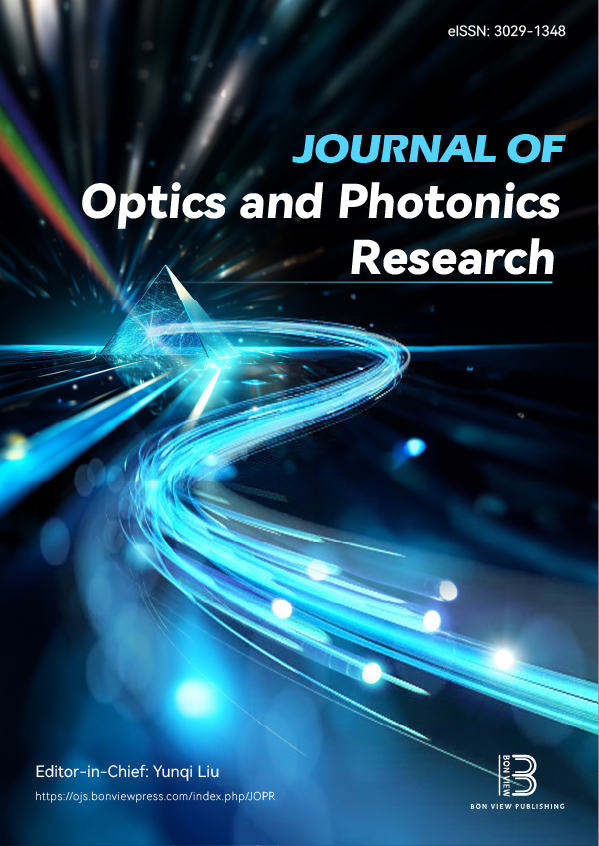Dependence of the Electromagnetic Radiation Transmission Coefficient of Liquid Crystal π – Cells in the Terahertz Range
DOI:
https://doi.org/10.47852/bonviewJOPR52025210Keywords:
liquid crystal, modulator, transmission coefficient, matrix methodAbstract
In this article, a modified Abeles technique is proposed for calculating the energy transmission coefficient of electromagnetic radiation of a liquid crystal modulator operating on the basis of a π-cell. The proposed technique has an accuracy of modeling the characteristics of the liquid crystal modulator comparable to known analogs. The results of computer modeling allow us to draw the following practical conclusions. The effect of changing the design parameters on the transmission coefficient of the liquid crystal modulator increases with a decrease in the wavelength of the electromagnetic range within the range from 16 μm to 1 μm. The maximum effect on the transmission coefficient of the liquid crystal modulator in the short-wave part of electromagnetic radiation is exerted by the thickness of the electrode layer, while there is no such dependence in the long-wave part of this radiation. The thickness of the orienting layer of the liquid crystal modulator has the same effect on its transmission coefficient as the thickness of the electrode layer, but with a smaller amplitude. The control voltage of the liquid crystal modulator has a significant effect on its transmission coefficient of electromagnetic radiation for short wavelengths and almost does not affect it in the long-wave region of electromagnetic radiation.
Received: 14 January 2025 | Revised: 13 March 2025 | Accepted: 18 April 2025
Conflicts of Interest
The authors declare that they have no conflicts of interest to this work.
Data Availability Statement
Data are available from the corresponding author upon reasonable request.
Author Contribution Statement
Anfal Fadhil Ahmed Mulamahawsh: Validation, Formal analysis, Investigation, Writing – original draft, Visualization. G. V. Simonenko: Conceptualization, Methodology, Software, Validation, Formal analysis, Data curation, Writing – review & editing, Visualization, Supervision, Project administration.
Downloads
Published
Issue
Section
License
Copyright (c) 2025 Authors

This work is licensed under a Creative Commons Attribution 4.0 International License.


